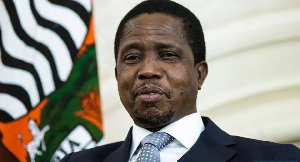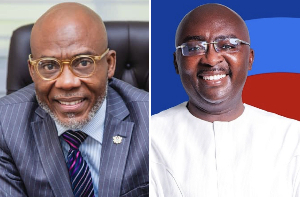Managing Editor of the “Insight” Newspaper, Kwesi Pratt, has fired salvos at former Minister of Finance and Economic Planning in the erstwhile Kufuor Administration, Yaw Osafo Marfo, questioning his moral right to speak on economic issues in the country.
The Senior Journalist could not understand the reasons for which the New Patriotic Party (NPP) would continue to allow Hon. Osafo Marfo to lead its criticism of the current administration’s economic performance, considering his track record as a former Finance Minister.
“Sincerely, I know what I’m about to say is controversial, but I will say it. The person in question is a very good friend, but I still have to say it because that is the truth. If we have to discuss the country’s economy, should Hon. Osafo Marfo be the one to do it? I don’t understand because it immediately creates a problem.
“He has been a Minister of Finance before and he is the same person who came to tell us that as Minister, he signed contracts without reading through. Is he the man to talk about efficiency?” he asked rhetorically on PeaceFM’s flagship programme, “Kokrokoo”, during a panel discussion on the press conference held by the Economic Team of the NPP on “Ghana’s Troubled Economy”.
Kwesi Pratt further asked if the NPP has no one who has not been “tainted by participation in politics” to lead the discourse on the national economy apart from the former finance Minister.
The former Finance minister, under the Kufuor-led NPP administration, explained that Ghana’s economy under the John Mahama-led National Democratic Congress government is facing a myriad of problems including “the huge public debt; the lamentable fiscal deficit, the humongous arrears, unbridled overspending, worsening unemployment, deteriorating utility services and failing social services.”
These problems, according to Mr. Osafo Marfo, are largely as “a result of the reckless expenditures of the 2012 election year” now catching up with all of us, for which the ordinary Ghanaian is now having to bear the brunt of the bad expenditure behaviour of the Mahama government during the 2012 elections.
The NPP’s Economic Team also outlined six measures the John Mahama led NDC Gov’t needs to adopt if it truly wants to end the current economic crisis facing Ghana.
These include: “restoring fiscal discipline in all departments of the public sector; reducing the appetite for borrowing from both domestic and foreign sources; a focused plan to enhance revenue mobilization but not through increased taxation; reviving Ghana’s ailing agricultural sector; job creation; and finally the appointment of competent people to run the affairs of the nation”.
But the Senior Journalist had issues with the alternatives proffered by the NPP. He also buttressed the fact that it is important attention is paid to their messengers because “if you make certain people talk on your behalf, your message may be good but people may not listen to it”.
General News of Sunday, 14 July 2013
Source: peacefmonline
Osafo Marfo not qualified to advise on Ghanaâ's economy - Pratt













